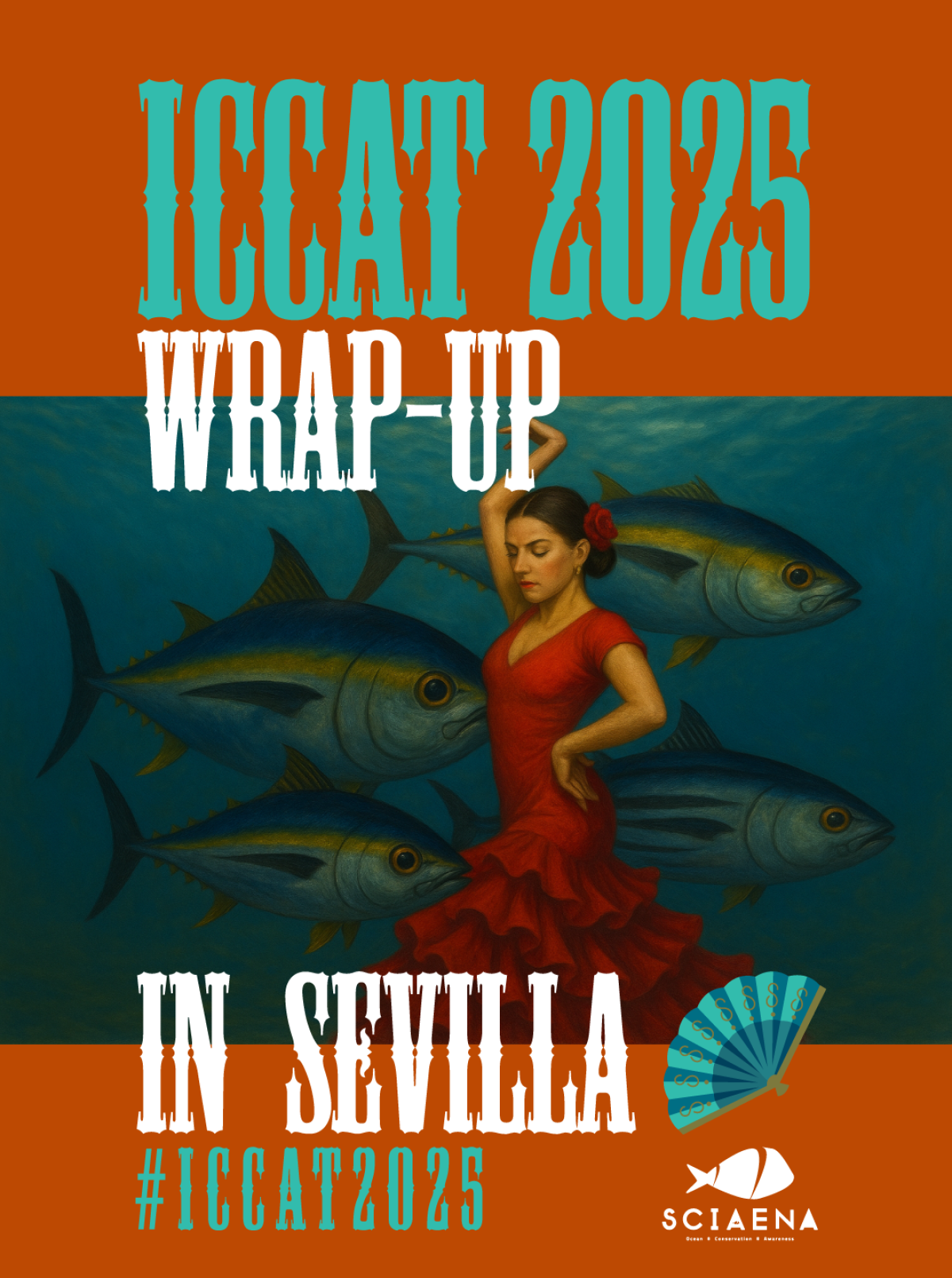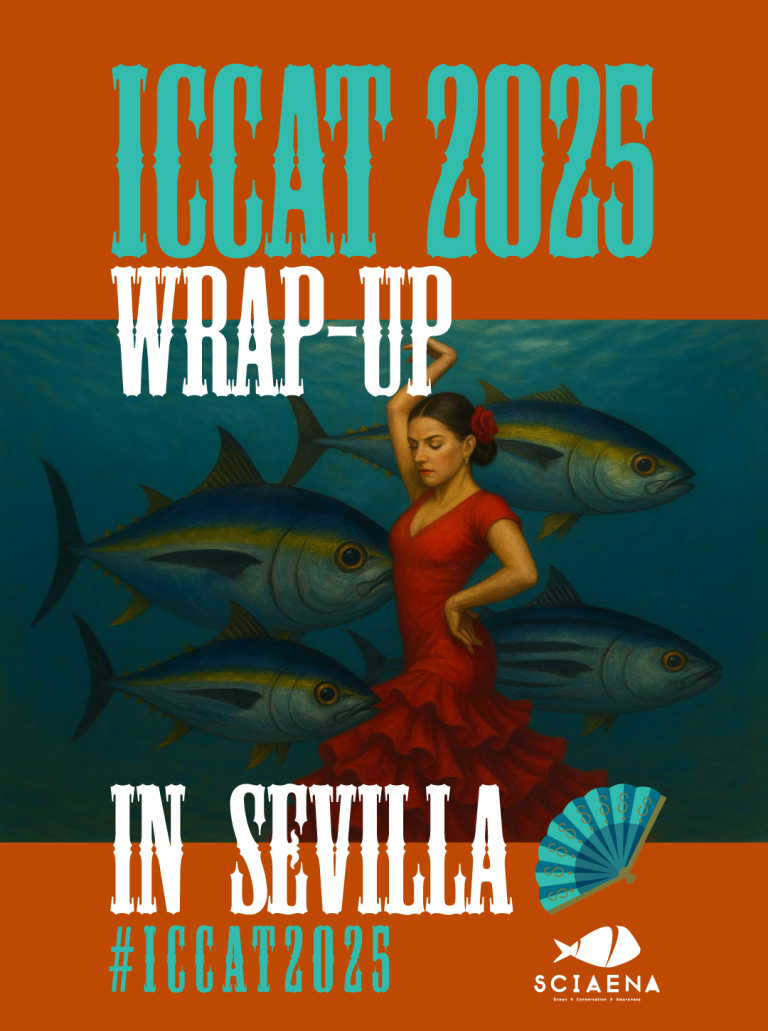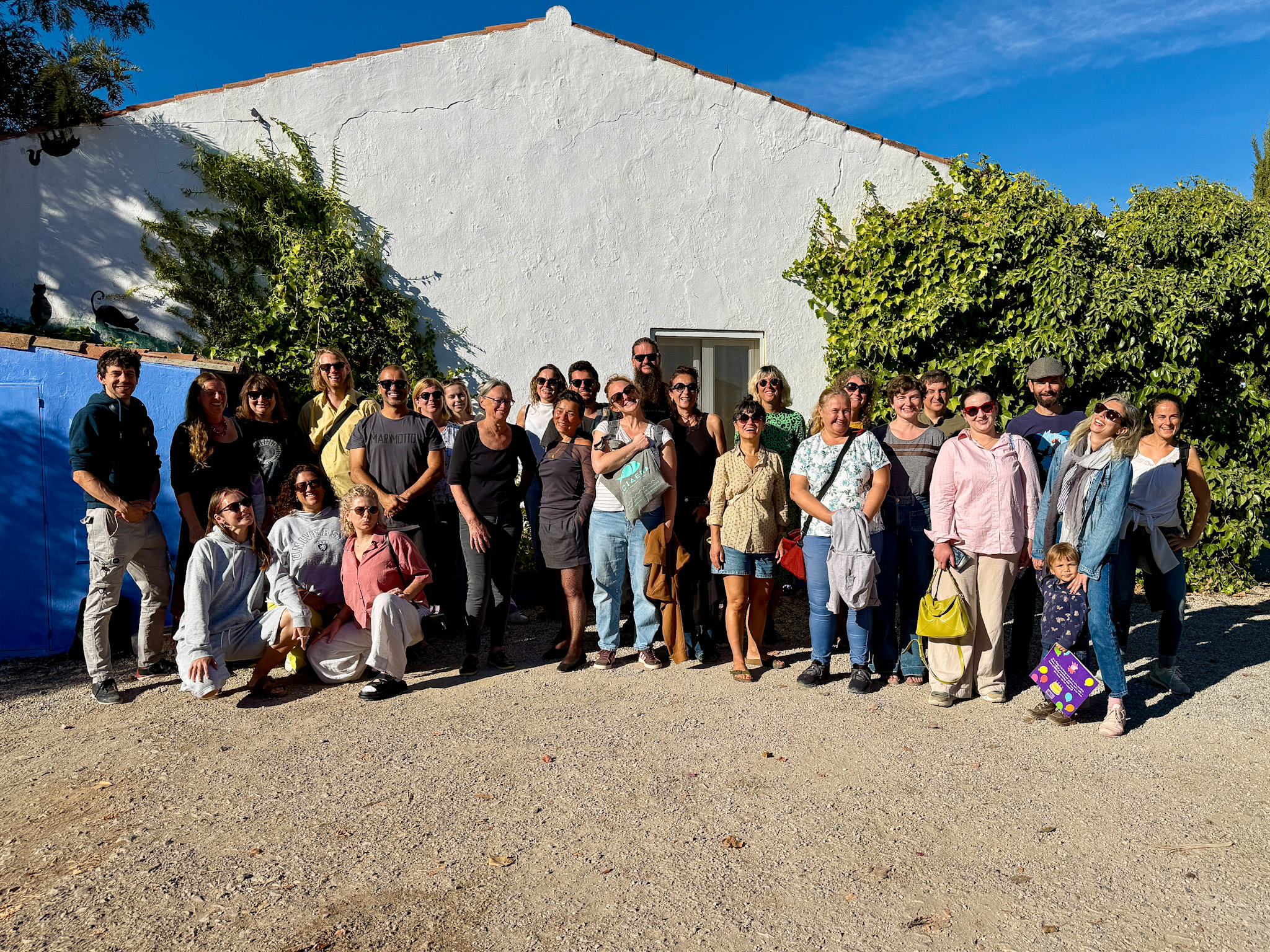A year of stalemates in Atlantic fisheries management decisions for 2026



As has become customary each November, Sciaena took part in the annual meetings of two of the Atlantic Ocean’s most important Regional Fisheries Management Organizations (RFMOs). Amid some positive developments, and others of significant concern, ambitious decisions intended to secure the conservation and sustainable management of iconic Atlantic fish stocks were postponed—putting at risk the future of coastal communities, the health of marine ecosystems, and their ability to cope with the impacts of climate change.
From 17 to 24 November, the 29th Regular Meeting of the International Commission for the Conservation of Atlantic Tunas (ICCAT) took place in Seville, Spain. Portugal was part of the European Union’s (EU) delegation and joined more than 70 countries to discuss and decide on several stocks of high ecological and economic importance, including swordfishes, tunas and sharks.
One of the most anticipated decisions concerned the approval of a Management Procedure (MP) for the western stock of Skipjack tuna (Katsuwonus pelamis). This measure was adopted at the meeting and represents a crucial milestone for ICCAT in its path toward ensuring that major stocks under its mandate are managed through MPs—tools that enable more stable, multiannual, science-based management of fisheries. However, progress slowed on the development of other MPs expected in the coming years due to the absence of binding decisions for the three tropical tuna species and for blue sharks (Prionace glauca), all of which are important to Portuguese fleets.
Regarding tropical tunas—and bigeye tuna (Thunnus obesus) in particular—efforts to revise the three-year management measure adopted in 2024 fell through. While this outcome prevents an increase in catches within sustainable levels, it also avoids the relaxation of rules on fish aggregating devices (FADs), ultimately helping maintain the stock’s health in the coming years.
On ICCAT’s most iconic species, Atlantic bluefin tuna (Thunnus thynnus), the Commission was unable to effectively advance the management procedures adopted at its 2022 meeting in Vale do Lobo. Although the species—managed as two stocks in the eastern and western Atlantic—remains under its MP, its practical implementation will be complex, and catch levels now sit at the edge of what can be considered sustainable over the long term.
With regard to the conservation and management of pelagic sharks, the meeting delivered disappointment through the repeated rejection of the “fins naturally attached” proposal, which would prohibit the removal of shark fins at sea prior to landing, further limiting the practice of finning in the Atlantic. However, the Commission did adopt a proposal to protect two threatened shark species—the Basking shark (Cetorhinus maximus) and the Great white shark (Carcharodon carcharias). The measure prohibits retaining individuals of these species on board in ICCAT-managed fisheries and requires reporting of interactions, thereby improving understanding of their preferred areas and their abundances.
Perhaps the most encouraging outcomes were the adoption of a resolution aligning ICCAT’s objectives with the Biodiversity Beyond National Jurisdiction (BBNJ) Agreement, and the strengthening of the implementation of the Port State Measures Agreement (PSMA) within ICCAT—improving the Commission’s ability to combat illegal, unreported and unregulated (IUU) fishing.
In parallel with ICCAT, the annual meeting of the North-East Atlantic Fisheries Commission (NEAFC) took place in London from 11 to 14 November. NEAFC is responsible for managing small pelagic stocks such as Mackerel (Scomber scombrus) and Blue whiting (Micromesistius poutassou), as well as a range of deep-sea species and ecosystems.
The Commission’s work was again heavily constrained by the Russian Federation’s invasion of Ukraine, which led to the cancellation of most intersessional meetings planned for 2025. Despite this challenging context, the annual meeting recorded meaningful progress in strengthening transparency and stakeholder participation. The number of observer seats on the Scientific Committee (PECMAS) was doubled, and observer organizations were, for the first time, granted partial access to the Compliance Committee (PECMAC), from which they had until now been excluded.
In a year marked by the scientific advice from the International Council for the Exploration of the Sea (ICES) recommending a substantial reduction in the Total Allowable Catch (TAC) for Mackerel, it was with great concern that we observed the failure to reach a TAC agreement consistent with the science. The overlap of negotiation processes between NEAFC and the Coastal States once again exposed structural limitations in decision-makers’ ability to fulfil the Commission’s mandate to set sustainable TACs for some of the most emblematic stocks of the Northeast Atlantic.
Uncertainty also remains regarding management measures for Blue whiting in 2026, as no agreement was reached. Nonetheless, progress was made on other stocks, including consensus on TACs for Atlanto-scandian herring (Clupea harengus) and Haddock (Melanogrammus aeglefinus).
The 44th Annual Meeting of NEAFC once again included a side event co-organized by environmental NGOs—this year by Sciaena and The Pew Charitable Trusts. Under the title “Hitting All The Targets: Implementing the Global Biodiversity Framework (GBF) Through Ecosystem-Based Fisheries Management (EBFM)”, the session explored how NEAFC and its Contracting Parties can advance biodiversity protection through an ecosystem-based approach to fisheries, contributing to a more comprehensive and effective implementation of the GBF. Unfortunately, despite constructive interventions and strong support expressed throughout the week, no progress was achieved on adopting a roadmap or management objectives that would enable full operationalization of EBFM.
In conclusion, despite several positive outcomes, short-term political dynamics hindered clear progress toward biodiversity protection and more sustainable, ecosystem-based fisheries management. While ICCAT’s multiannual measures and management procedures help buffer the impact of stalled decisions, the same cannot be said for NEAFC—where the need for deep structural reform is becoming increasingly urgent.
Location: Incubadora de Empresas da Universidade do Algarve, Campus de Gambelas, Pavilhão B1, 8005-226 Faro
Phone: +351 936 257 281
Email: sciaena@sciaena.org

